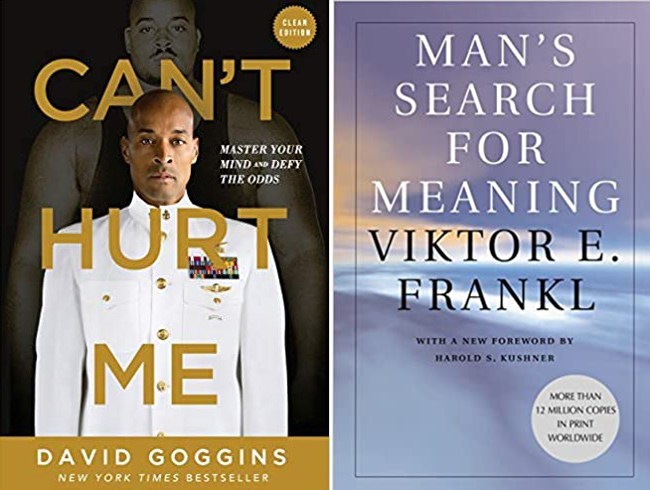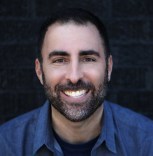Which Type of “Tough” Are You?

“It’s a lot more than mind over matter. It takes relentless self discipline to schedule suffering into your day, every day.” -David Goggins
“But there was no need to be ashamed of tears, for tears bore witness that a man had the greatest of courage, the courage to suffer.”-Viktor Frankl
I recently finished reading David Goggins’ “Can’t Hurt Me” and I found it very fascinating. He is an American icon, a Seal and someone who physically pushes harder and further than almost anyone on the planet. From 100 mile runs and crazy Triathlons to his SEAL experiences, his quest to be the best endurance athlete is inspirational.
Viktor Frankl is also quite inspirational. A holocaust survivor, he wrote “Man’s Search For Meaning” to explain that while he was a captive in the worst of situations, nobody could take his spirit.
Both Goggins and Frankl are able to show us the limits of how our human spirit can be stretched. But there are major differences in the way the two men looked at life and those around them, and it made me think about the startling similarities -and differences- in their approaches. Both men endured incredible physical suffering (one voluntarily and one involuntarily) and showed us we can still go on, but in vastly different ways.
I have many friends who admire Goggins and I do as well, but it’s simply because of his physical stamina and Kyle Maynard’s “Not Dead, Can’t Quit” attitude. (If you don’t know who Kyle Maynard is, go look him up and be inspired.) We’ve all faced our physical challenges at some point in our lives and it’s great to have someone we can look at to become inspired. But beyond the 100 + mile races in searing heat, and his dedication as a member of our armed services (for which I have the utmost thanks and respect), Goggins is a bit of a cautionary tail. He’s thrice married, never really talks much (in his book, at least) about spirituality, family, professional or much more than physical aspirations. There are more than a few times in his book where he describes-with pride- how hard he physically drove himself and how even fellow SEALs didn’t want to come along for the ride. If you want a guy to anchor your tug-of-war team, he’s your guy. If you could have a life mentor or just one person from history at your dinner table, that’s probably a different story.
Victor Frankl is an altogether different type of mental toughness, or perhaps mental liquidity, able to shift and adapt and free his physical self from his surroundings. He lost his wife, mother, father and brother in the Holocaust. Yet, he still focused on helping others by showing them how one’s body can be imprisoned but the mind can still be free to travel. He created the school of psychotherapy called “Logotherapy” and initially published his most famous book “Man’s Search For Meaning” anonymously because he felt that he could write more freely that way. He remarried, had kids and grandkids and by all measures, lived a full life.
Both men teach incredible lessons for us to learn from and both have taught us how to push through barriers in our lives so that we can succeed, grow and achieve. But it IS a cautionary tale. Goggins reminds me of the orthodontist who aspires to be the greatest clinician on the planet, no matter the cost. None of us (hopefully) wants to be the world’s greatest tooth straightener and come home to an empty house where we work on how to become an even better clinician, only to wake up the next morning and repeat the process. We need to work hard and be the best we can be while still expanding in all 4 corners (equally) of “Play, Love, Worship & Work” describe by LD Pankey.

Our practices and careers take up a huge chunk of our lives and require significant attention and sacrifice. In no way am I comparing my professional career to the pain that Goggins or Frankl endured. That’s not my point. I mean to say that there are lessons on personal management to be gleaned from each of these men and they can both be inspirations-or cautionary-depending on how we look at the tales.
Read both Goggin’s and Frankl’s works and learn from their mental “toughness” or “resiliency”. Understand their different approaches on facing the tough situations. I am blessed to have both a mother and a father and they each taught me very different lessons in their own ways. That is how I choose to view the approaches of both of these remarkable men as I weave their messages into my own life, and the challenges I face.
Wishing you the best,



Responses